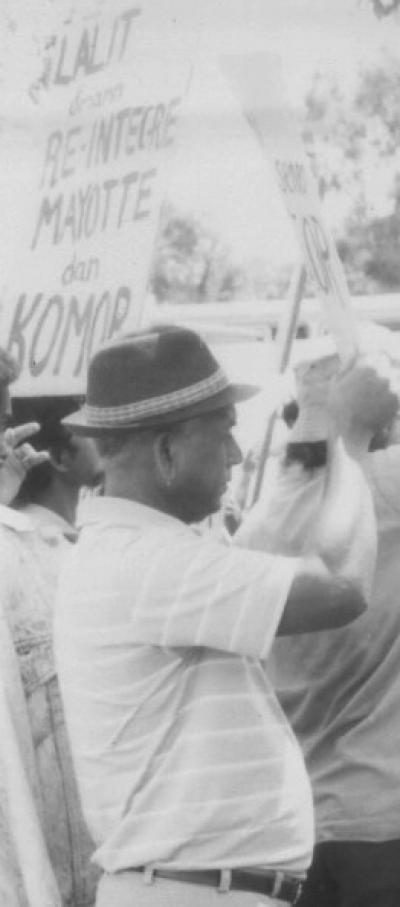There are sometimes great Mauritian heroes that die unsung. Gianduth Khaytoo, known as Ramesh Khaytoo, Lalit founder-member and activist, passed away exactly two months ago on 29 November, after a stroke. He was a real “Working Class Hero”, to quote John Lennon’s song title.
The immense contribution of Ramesh Khaytoo was his conceptualizing and organizing of an unusually powerful grass-roots strike in 1970, and also his creation of a new way of actually organizing work itself in the fields in 1971. He represents the energy in the working class of the early years of the MMM. So, when he joined LALIT de Klas as a founder member in 1976, he brought with him these two fantastic experiences.
The 1970 strike Ramesh organized was a rolling strike. It was a protest against a problem at a sugar Estate. There was a kolom who, with the collusion of a sirdar, isolated women labourers and raped them. Labourers became more and more angry. Then, one day the kolom organized for a young girl worker of 12 to be his prey. So, the rape this time was of a child. Workers discussed how to act. They decided to go on strike.
But how do you set about organizing a strike in the middle of a State of Emergency? Without losing your job, getting arrested, being set up for some criminal offense by the boss the very next day? Not easy. So, workers, under Ramesh’s leadership, planned it carefully. On Monday, everyone working in the P. Annex went on strike, while the other seven Annexes worked away as though everything was hunky-dory. The next day, while the P. workers all arrived at work and worked, there was a total strike in the Yemen Annex. On Wednesday, the P. and Y. workers were both back at work, but this time L. labourers were all absent. The bosses were hurled into confusion. They felt attacked by a poltergeist. Tit-Albert. Why? What could they do to stop it? They enquired around, and finally found out that management was harbouring a sexual predator.
They sacked him.
The strike had been a total success. No workers lost their jobs. This gave workers immense confidence. No sindikalist had been involved. They did it by themselves. Imagine the profound lakorite they built. Such was Ramesh Khaytoo’s capacity.
The next year, in 1971, Ramesh became leader of a completely different action, in the sugar estate he worked in, Anna. Workers organized themselves to do their piece-rate work collectively, instead of individually, as they were made to do in the intercrop season. They calculated the total work to be done, all worked at a reasonable pace, completed it, and then requested that the total pay be divided equally amongst them. All unhealthy competition between work-mates ended. Weaker workers were not punished. Work changed from drudgery to something pleasant. They had needed “lakorite”. They worked one full day. Loved it. And part of the second day.
But, the bosses would not accept it. Could not. Admit labourers could create something so important? What was the meaning of workers arranging how work is performed? Is this not a proof that the bosses are superfluous? Is this not a rebellion against capitalism itself?
The Anna bosses gave instructions for all the workers to stop work at once and go and wait at the Anna offices. They gave this order for three consecutive days. Then sacked every single worker on the Sugar Estate.
What argumentation did they use? The workers, they said, were absent without permission, and therefore on strike. The strike was illegal, they said.
The Labour Inspector was in collusion.
Police and their dogs were present for the sackings.
The State backed the boss. Every worker’s name went on to a boss’s list, so that none of them would ever get work in the private sector.
Yet, the workers never regretted their “sistem nuvo”. They had held a revolution in the way work is organized, and they knew it.
This sacking was chronicled in the Revi LALIT de Klas in 1977, and then became the basis for the best play ever written in Mauritius, Tras, by Henri Favory, which sees the events from the marathon Court Case that dragged for years. The play is due out in a new bilingual edition this week.
So, when Ramesh Khaytoo has recently passed away, it is a moment to pay homage to a labourer who has made a huge contribution to the struggle for socialism. The fact that newspaper readers may not know Ramesh Khaytoo does not mean that his contribution does not already have a place in the collective memory. It does have. He has left his mark. Li finn kit enn tras. When the play Tras was first performed, it went all over the country. To Port Louis in 4-5 different halls, Curepipe L’Hotel de Ville, and to villages all over: Surinam, Bambous, Black River, Pamplemousses, Mahebourg. So, Ramesh, when you think about it, is a well-known person. His mark has been made on Mauritian society as a whole. He is not as “unsung” a hero as all that.
Ramesh left six children – Juna, Rishi, Gag, Fiya, Devina and Lolol – and many, many friends.
OBITUARY : Ramesh Khaytoo, Working Class Hero, leaves his Tras
- Publicité -
EN CONTINU ↻
- Publicité -

